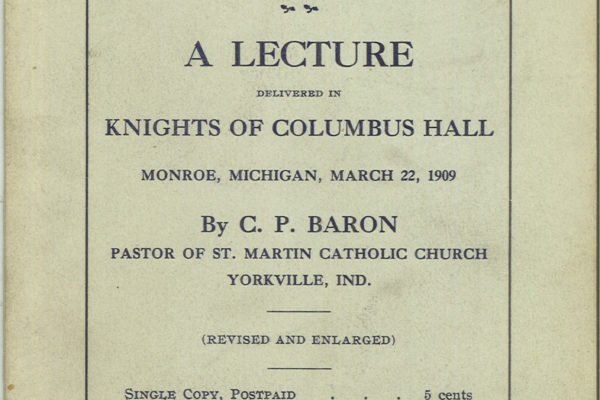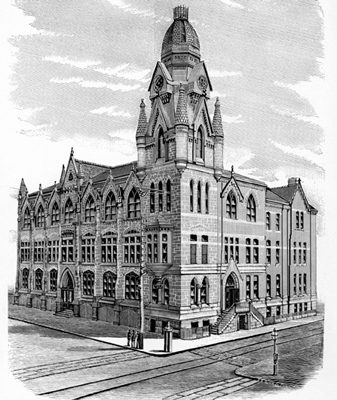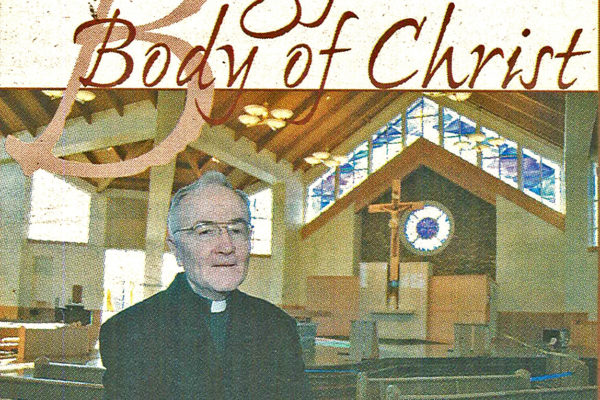An “Un-American Invention”?: Catholics and the Issue of Prohibition
...sh Catholic organization focused on encouraging the public to abstain from all alcohol. Despite their opposition to individuals drinking, many within the CTAU did not believe prohibition was the solution to end alcohol consumption. The CTAU of Philadelphia was one of the major opponents since they believed it was more
Roman Catholic and Archdiocese High Schools
...ioceses once again looked to Philadelphia as a guide to expanding educational opportunities. [1] IC119, Will of Thomas E. Cahill & Charter and Constitution and By-Laws of the Roman Catholic High School, 6. [2] IC119, Roman Catholic High School for Boys 2nd Founders Day (May 26, 2000), 5. [3]
Irish College, Rome. Transcripts, 1832-1848 (MC 53)
...America. Correspondents include Francis P. Kenrick, Peter R. Kenrick, Edward Barron, Michael O’Connor, John England, John Hughes, William Clancy, John Thomas Hynes, Thomas James Power, James Rogers, and John Walsh. 1 box, .2 linear ft....
Monsignor Francis X. Meehan
...rian University in 1962 and a Doctorate in Moral Theology from the Pontifical Alphonsian Academy in 1965. Father Meehan began his post-doctoral career in academia, teaching at Saint Charles Borromeo Seminary, Immaculata College, La Salle University, and The Catholic University of America. Father Meehan was not the only child called




